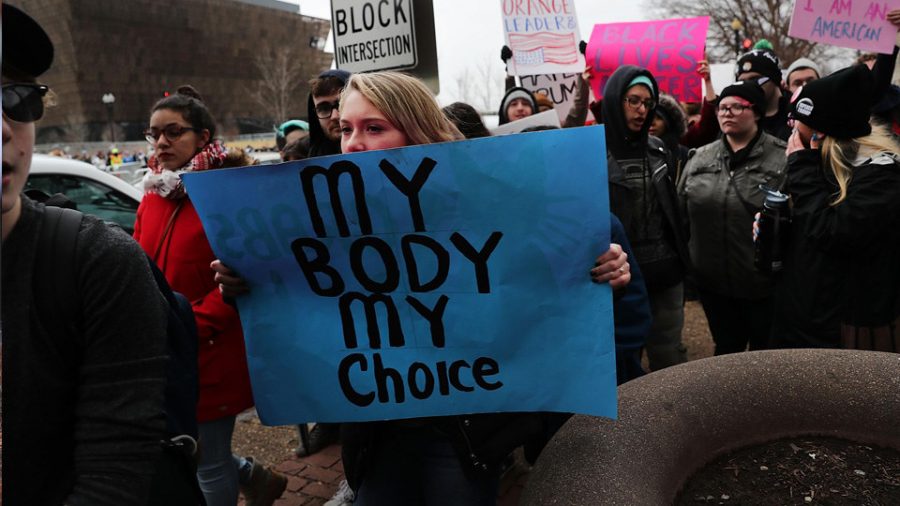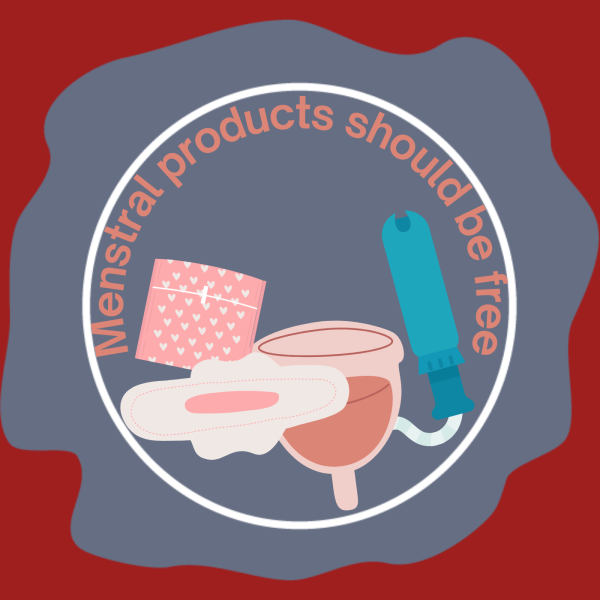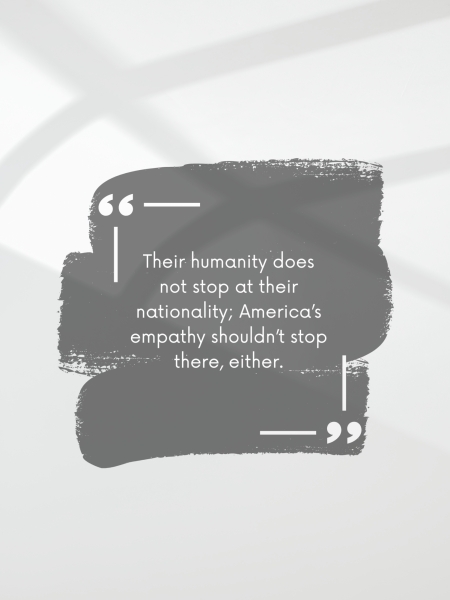Editorial: Activists fight unethical abortion ban
A poster reads “My body, my choice“ at the 2019 Women’s March.
Questioning bodily autonomy
Following the passing of a recent “Heartbeat Bill,” on May 15 in Alabama, women all over the world fired back at politicians in arguments for their own bodily autonomy.
Bodily autonomy is defined as a person having control over who or what uses their body, for what, and for how long. It is also classified as a fundamental human right. A classic case of bodily autonomy is in cases of organ donation. In a medical procedure requiring a transplant, doctors must have previous express written permission of the donor, who is deceased, in order to harvest and make use of organs.
Under the Heartbeat Bill, women will have less bodily autonomy than the dead. As stated in the nternational Covenant on Civil and Political Rights: “The right of a woman or girl to make autonomous decisions about her own body and reproductive functions is at the very core of her fundamental right to equality and privacy, concerning intimate matters of physical and psychological integrity.” When government decides how a woman’s body is meant to be used, it is stripping her of her constitutional rights.
Frequent arguments from pro-life activists consist of calling women selfish for choosing abortion. Selfishness is allowing those in power to control our citizens; when someone makes a choice in the interest of their own body, that is not selfish. That is a basic human right.
Women are not complacent human vessels for pregnancies. If a woman wants to receive an abortion just because she isn’t ready to be pregnant, she should be able to. Allowing abortions only in the case of rape or incest imply that abortion needs to be justified by trauma. It does not.
When fetal development is valued over a woman’s life, we are telling our daughters, sisters and mothers that their lives are less worthy than a mass of cells. A lifetime of experiences is worth far more than a cells at a stage of development that cannot think, reason or fear.
However, women do not deserve rights because they are daughters or sisters or mothers. Their rights should be fought for because they are their own individuals.
Laws conflict with women’s rights
In May, when Alabama passed the country’s most restrictive abortion laws, states such as Arkansas, Georgia, Kentucky, Ohio and Missouri started the process of moving bills through Congress to put higher restrictions or complete bans on abortions. The bill signed by Alabama’s Governor, Kay Ivey, restricts abortions in almost every circumstance, including rape and incest. Women who have abortions and doctors who perform the procedure can now be punished for up to 90 years in Alabama.
So, where do women’s rights come to play in these situations? Looking at the people voting on these restrictions, why are the majority men? People need to understand that putting restrictions and bans on abortions is not going to make abortions obsolete. It will only limit safe abortions. What needs to happen is an expansion of access to contraceptives and sex education. This will help reduce the chances of women getting pregnant — women who aren’t ready for a child — and this will educate children and teens on safer sexual encounters.
Placing highly restrictive laws on abortions has only added to the furor of women’s rights activists all over the world. That fury isn’t going to stop anytime soon.
Ohio is now trying to ban birth control in one of its new bills. But birth control is used for much more than contraception. It helps treat cysts in breasts and ovaries; it helps with endometrial and ovarian cancers, iron deficiency, bone thinning, acne and so much more.
Taking away the right for women to get abortions is taking away a right for women to choose what happens to their bodies. A change is needed, and women need to be in control of that change. As Rachel Green once said, “No uterus, no opinion.”
Church vs. state sparks debate
In 1791 the First Amendment was added to the Constitution. Included in it is the Establishment Clause and the Free Exercise Clause, commonly known as separation of church and state. With new abortion laws popping up, many pro-choicers are bringing this clause. Many pro-lifers base their argument on their religious view of a fetus as a life, which certainly doesn’t seem like separation of church and state.
Even if with the argument that a person’s views come from opinion, not religious background, it is often the case that a person’s opinion is indeed influenced by that background. For people of any faith who believe in the Bible and would like to force their views into Congress, make sure to check the facts.
Not only does the Bible not mention abortion in any way, according to the Freedom From Religion Foundation, the Bible defines life as “breath” in many different passages. When taken in context, this “breath of life” means a breath of air, which isn’t taken until a baby is out of the womb. This shows that the Bible doesn’t define a fetus, at any stage, as a living being. This debunks the “thou shall not kill” argument, since it’s impossible to kill something that is not alive. According to the same foundation, many churches, including the Reorganized Church of Jesus Christ of Latter-Day Saints, have recognized that the Bible doesn’t condemn abortions, and also recognize that abortions should stay legal.
For the smaller percentage of the pro-life community whose views aren’t influenced by religion in the slightest, there’s still fact-checking to be done. When considering stances based on science, unfortunately there is no definitive proof whether a fetus in question is actually alive. But there are other factors to account for.
There are countless different views, from this side of the pro-life argument, as to when a fetus is actually alive. Some people believe that life starts at conception. Others believe believe life starts at brain activity. Again, it’s scientifically impossible to prove when a life begins, but as irishtimes.com puts it, “There are facts that can help show when a life does not begin.”
While the first signs of brain activity in a fetus can be detected as early as eight weeks, the amount of brain activity to prove a fetus is conscious, per se, only occurs at the end of the second trimester of pregnancy, around 24 weeks. Also around this point comes the complete formation of the thalamus. This part of the brain, according to britannica.com, has many functions including the relay of sensory signals. A fetus can feel no pain until the thalamus is formed. A fetus, before 24 weeks and sometimes even after, cannot feel pain, is not alert, and is not conscious. If an adult, or a 2-year-old, or an infant, met the same criteria in all those categories, that person would be considered brain dead. There is no way such a person would be able to survive without life support. There would be no punishment, especially not a murder charge, if a primary caregiver decided to take such a person off of life support. Why is it different in cases of abortion?
11 out of 11 Bengal’s Purr staff members agree with the views shared in this editorial











